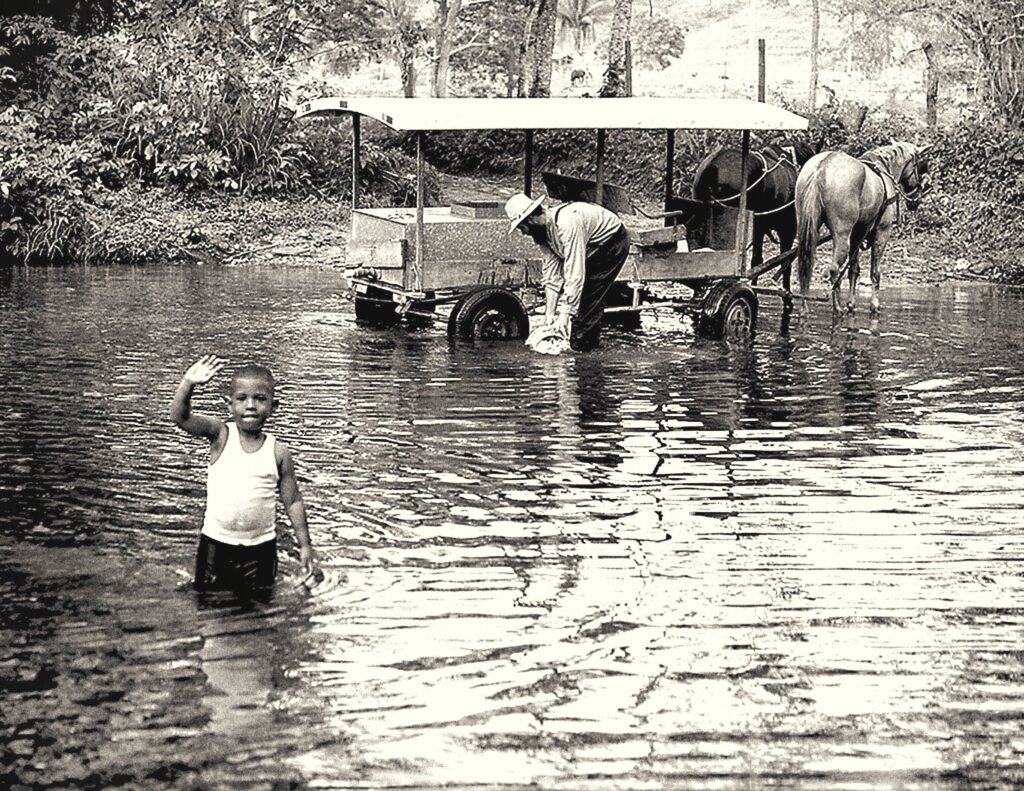
The sun hangs heavy above the orange groves of Belize, and at a small watering hole etched deep by time and cattle hooves, a young boy stands knee-deep in the rippling brown-green water, his shorts rolled high, his shirt tied around his neck like a cape, his toes curling in soft mud.
His name is Noel, maybe six. Barefoot. Dark-eyed. The kind of boy who doesn’t ask for permission to splash, but watches the world with quiet precision.
Across from him, a Mennonite man—broad-shouldered, sunburned under a wide straw hat—lowers a bucket into the water. The rope creaks. The water sloshes. He pulls, slow and practiced, then pours it into a wooden barrel strapped onto the back of a horse-drawn cart. The horse snorts. Swishes its tail. Waits.
They don’t speak the same language, not fully—the boy in Kriol and Spanish, the man in Plautdietsch and silence. But they nod to each other, two lives joined by thirst and dust and routine.
This moment won’t make headlines. No one’s taking pictures. But it is the kind of moment that holds entire worlds: of land, labor, language, of childhood and horse hooves, of shared water beneath a brutal sun. And when the cart finally creaks off into the trees, and the Mennonite family disappears into the rustling bush, Noel stays in the water a few minutes more. Just long enough to feel the world slow, just enough to own the watering hole, just enough to breathe. Then he steps out, mud on his legs, and walks barefoot home.